Summary
What does it really mean to learn in today’s world of reels, AI, and short attention spans? In today’s episode of “The Gyaan Project”, I’m joined by Prof. Dilip Menon. A global historian, Mellon Chair of Indian Studies at the University of Witwatersrand, and a Science Breakthrough winner—who’s spent years exploring how knowledge travels across time, oceans, and cultures. If you're a student, parent, or just curious about why our education feels broken, this episode will shift how you think about learning itself. You can watch this episode on YouTube also.
Questions asked in this episode
Let's start with a broad question - It is said that “when the student is ready, the teacher will appear”. Who according to you is a teacher and a student? How do you define them?
According to you what are the main and sub sources of information? History, culture, folklore, regional knowledge systems, oral traditions? How do you juxtapose them with new media and the internet and now with AI?
Economic Survey 2023-24 says, only 51% of graduates are employable. Do you see this as a skill gap or something more?
Could you tell more about how language influences learning from your article, “Lessons from India on decolonizing language”? Why learning is often tied to the colonial and postcolonial experience.
How can one distinguish between ‘learning’, ‘knowing’, and ‘just consuming content’? For eg: If I watch a reel and know how to fix a broken flip-flop - isn’t it learning? What’s the harm in that? What does deep, meaningful learning look like?
Could you tell us about the importance of interdisciplinary learning—mixing history, literature, and science? Has STEM created silos? How can we fix it?
Political narratives are influencing parents and grandparents in India. How can we nurture curiosity and historical consciousness in children beyond WhatsApp forwards?
How do historical events, politics, cinema, and culture shape what we are taught? How much of learning is influenced by these factors?
Practical tip: I have stopped reading long articles, dealing with pain, and handling disagreements and my attention span is diminishing. Does it need a fix? What can be done to improve it?
A bit of speculative fiction (who has studied the past well) - How do you imagine knowledge being transferred and learning happening in 2040?
You can watch this episode on YouTube
People mentioned
Reference links
Join the new journey
YouTube Channel – Join 4K+ subscribers. 🎥
TGP SamaChar – A newsletter with 4 curated finds across episodes.
Instagram – Stay updated with episode updates and more
LinkedIn Page - A new dedicated page for TGP
WhatsApp Channel – One-way episode updates for now. With your support, it could soon become a vibrant community.
Recommend a guest - Have someone in mind who would be a great fit for The Gyaan Project?


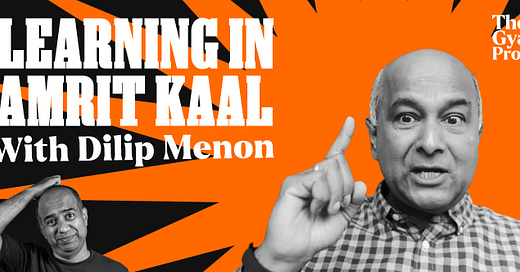



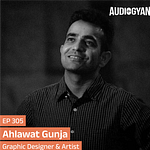
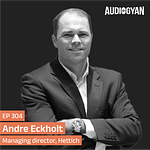

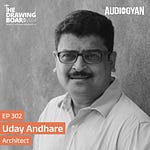
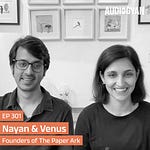
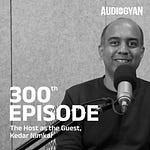
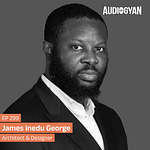
Share this post